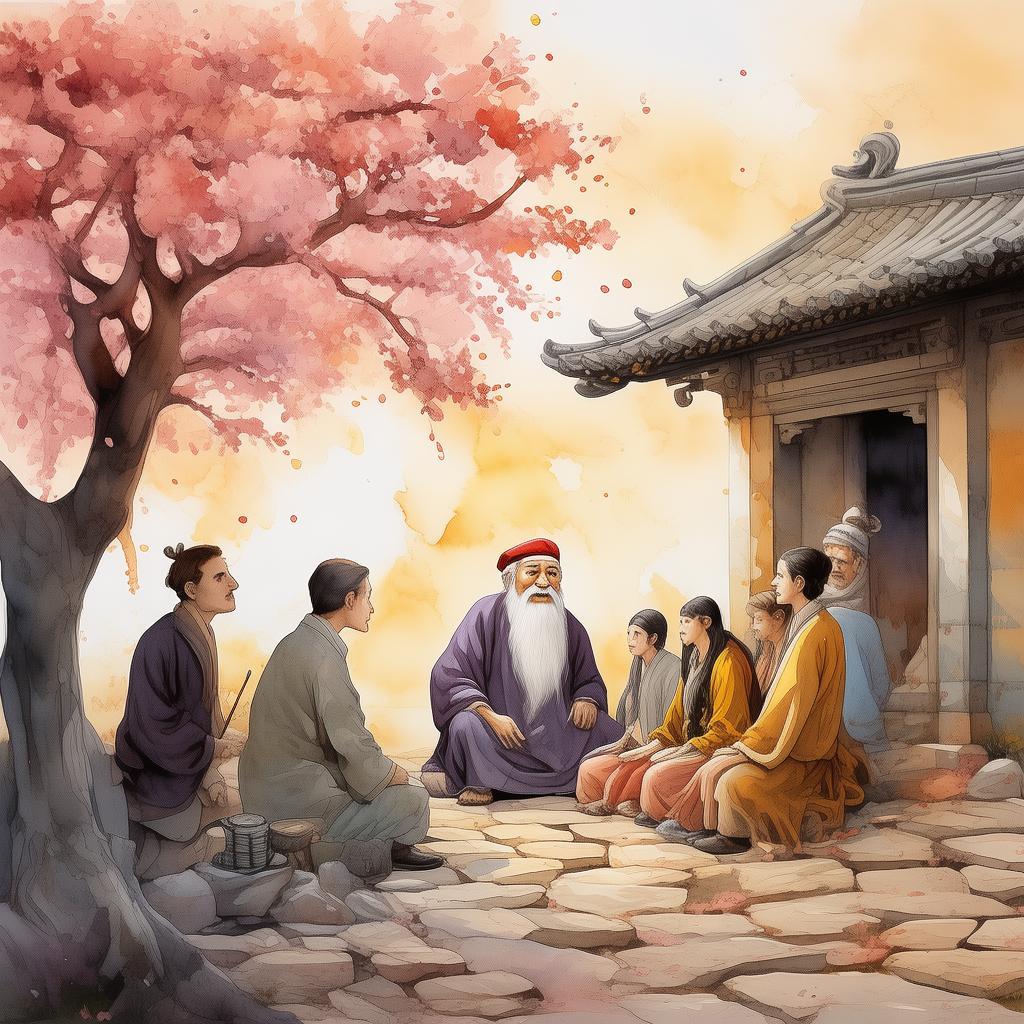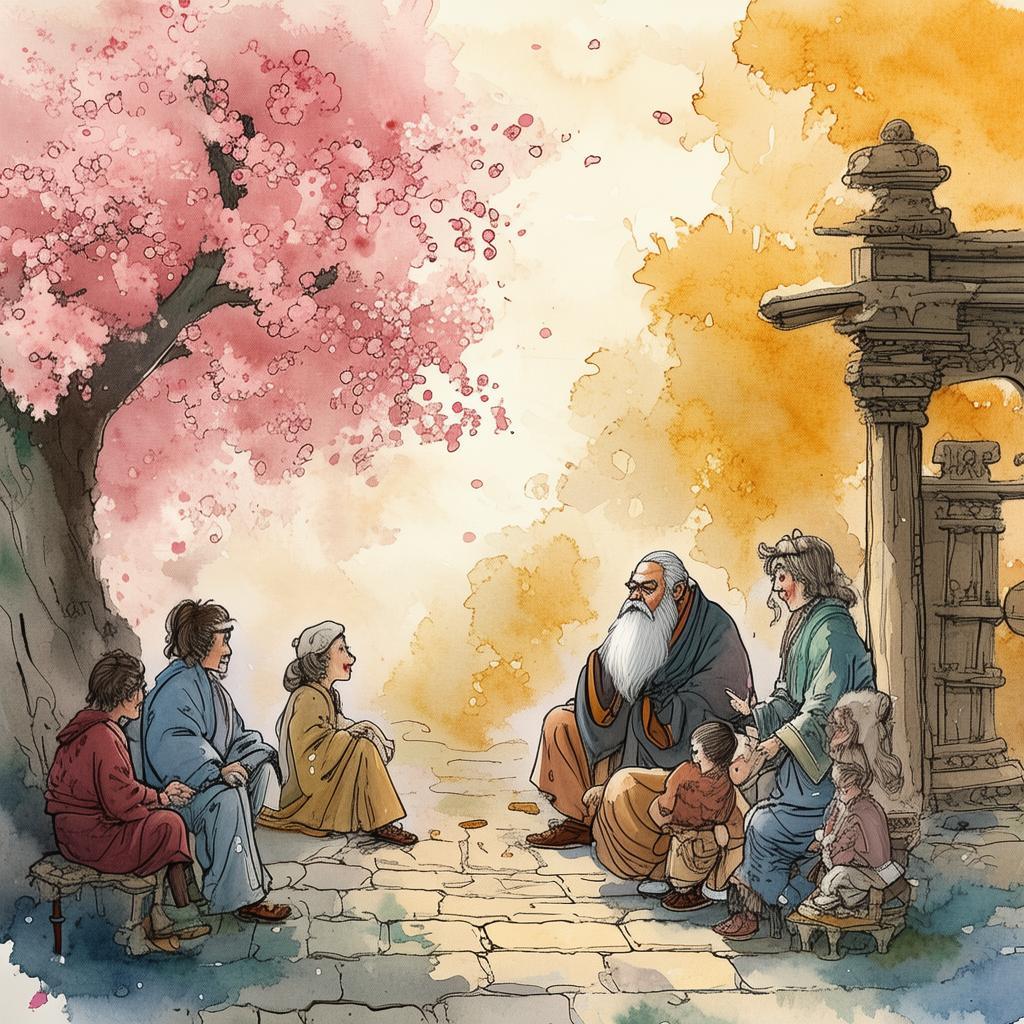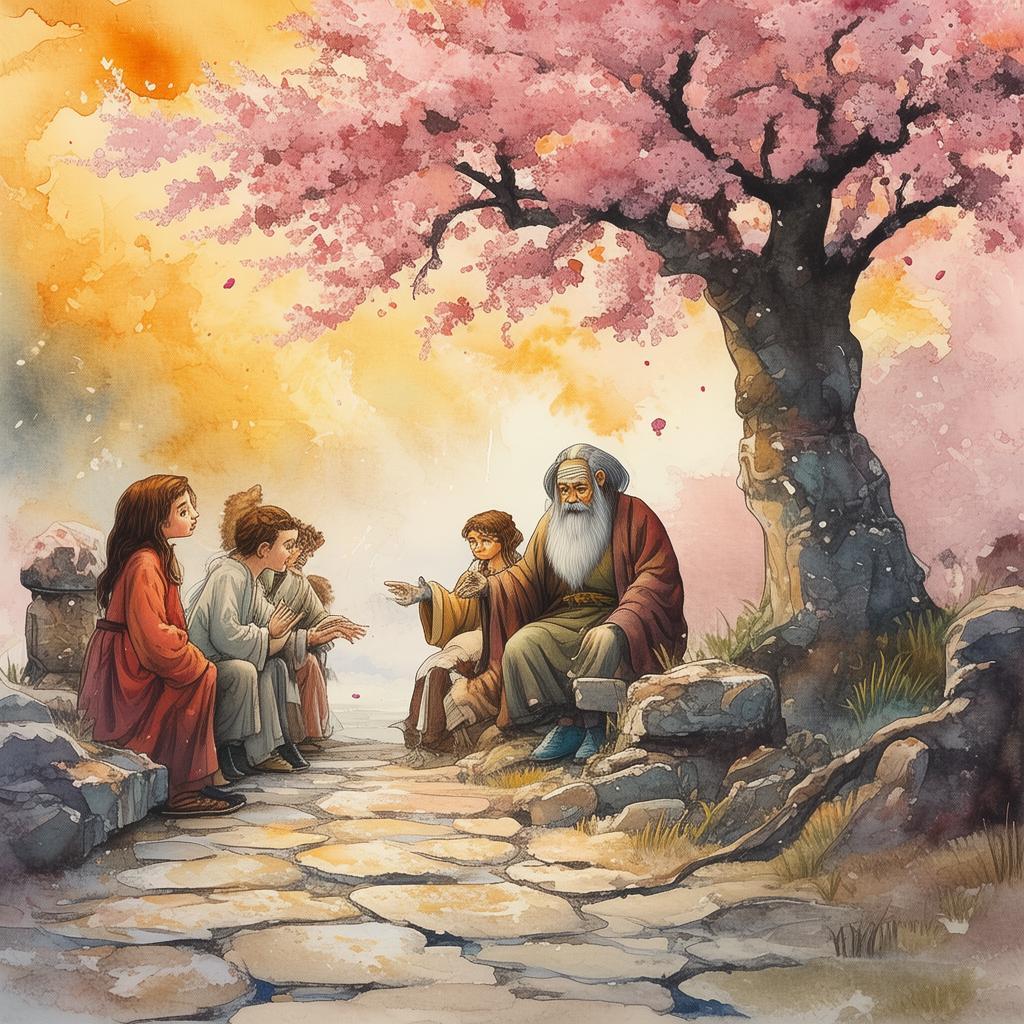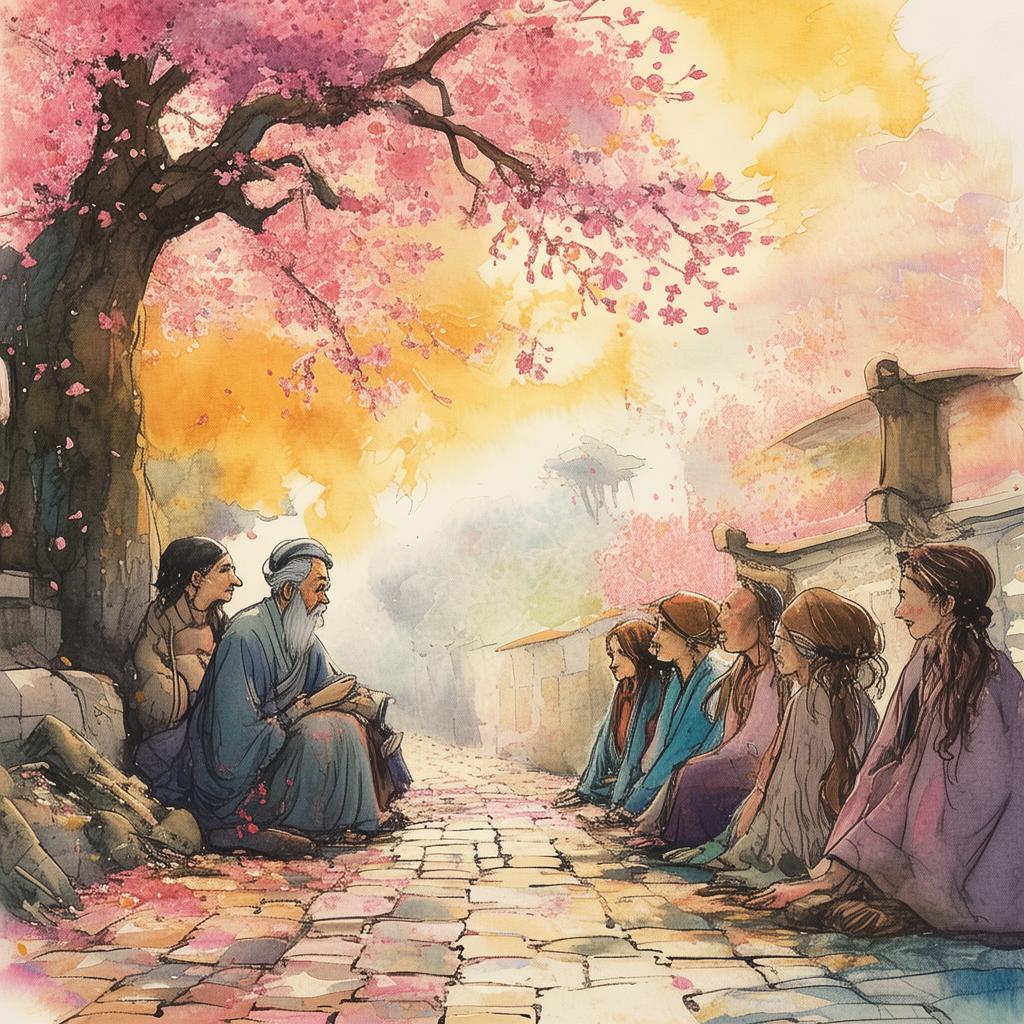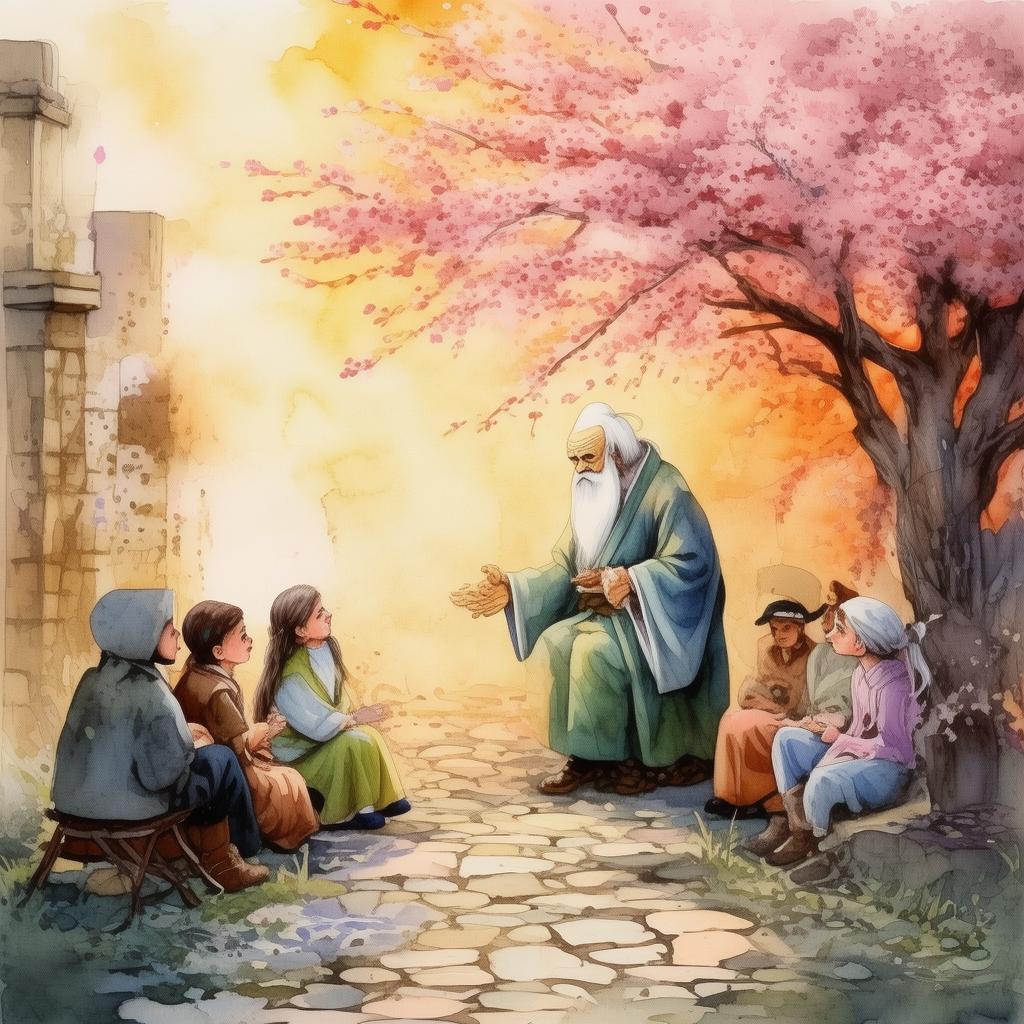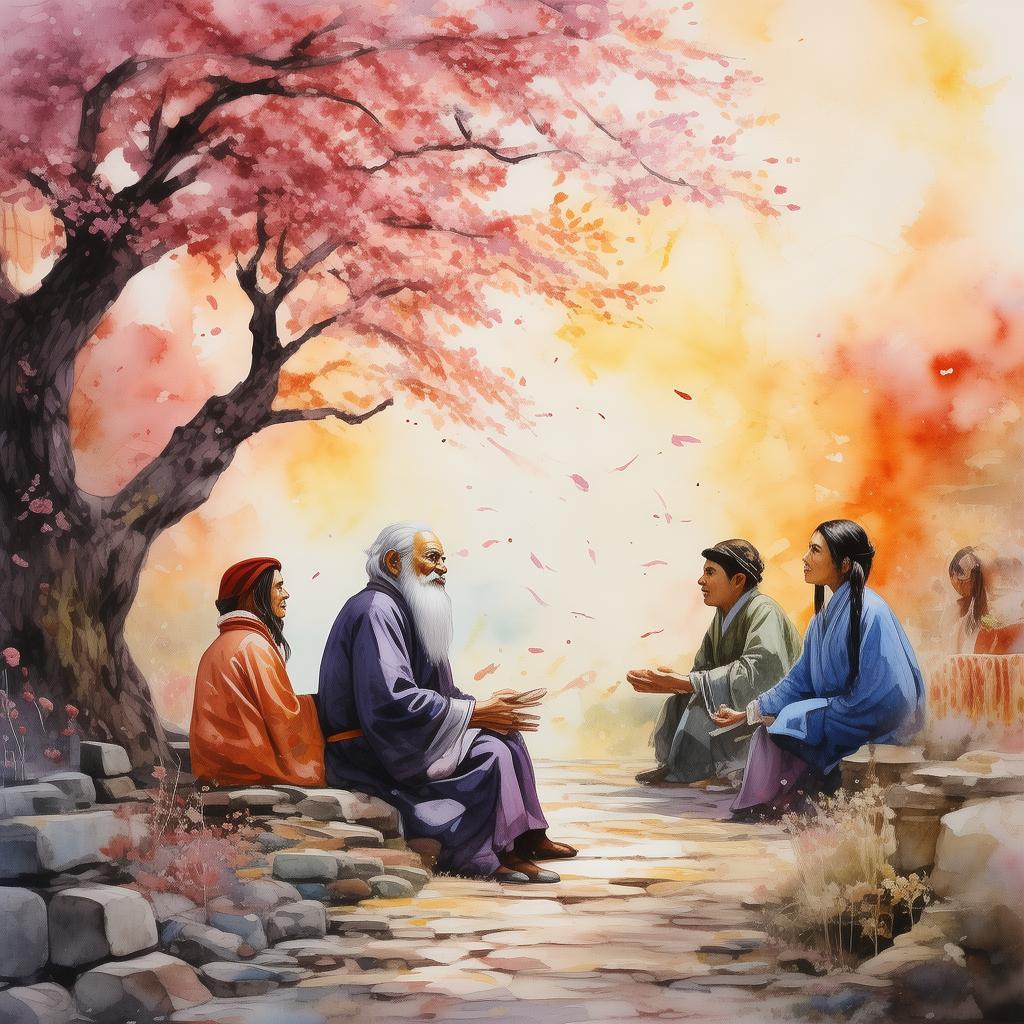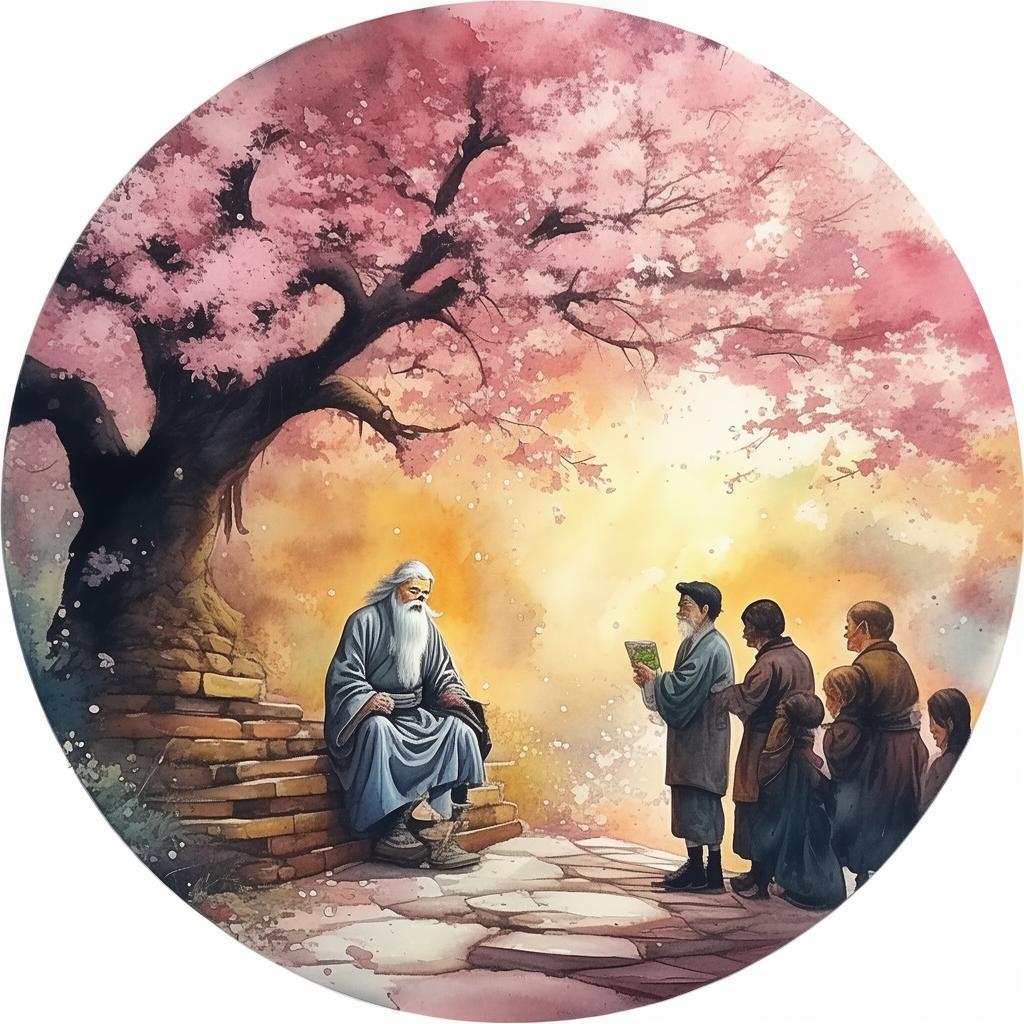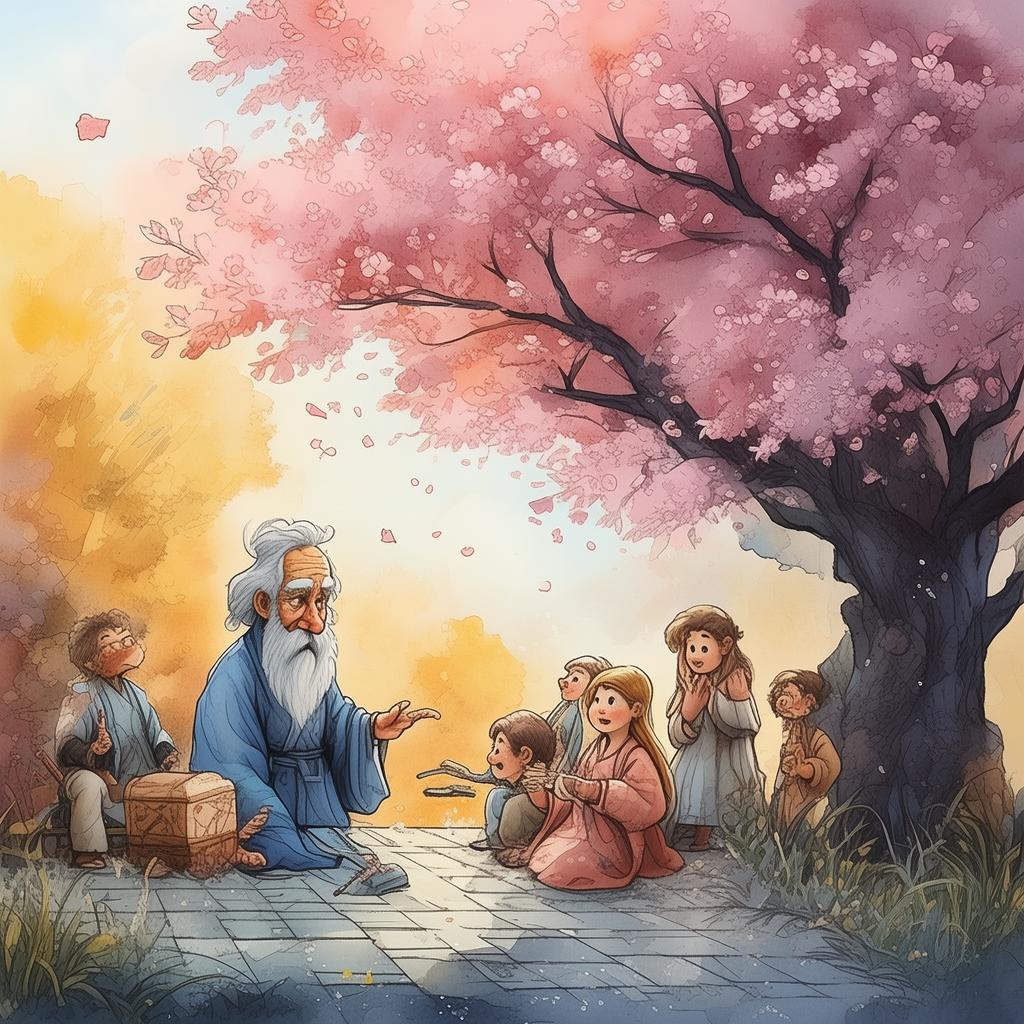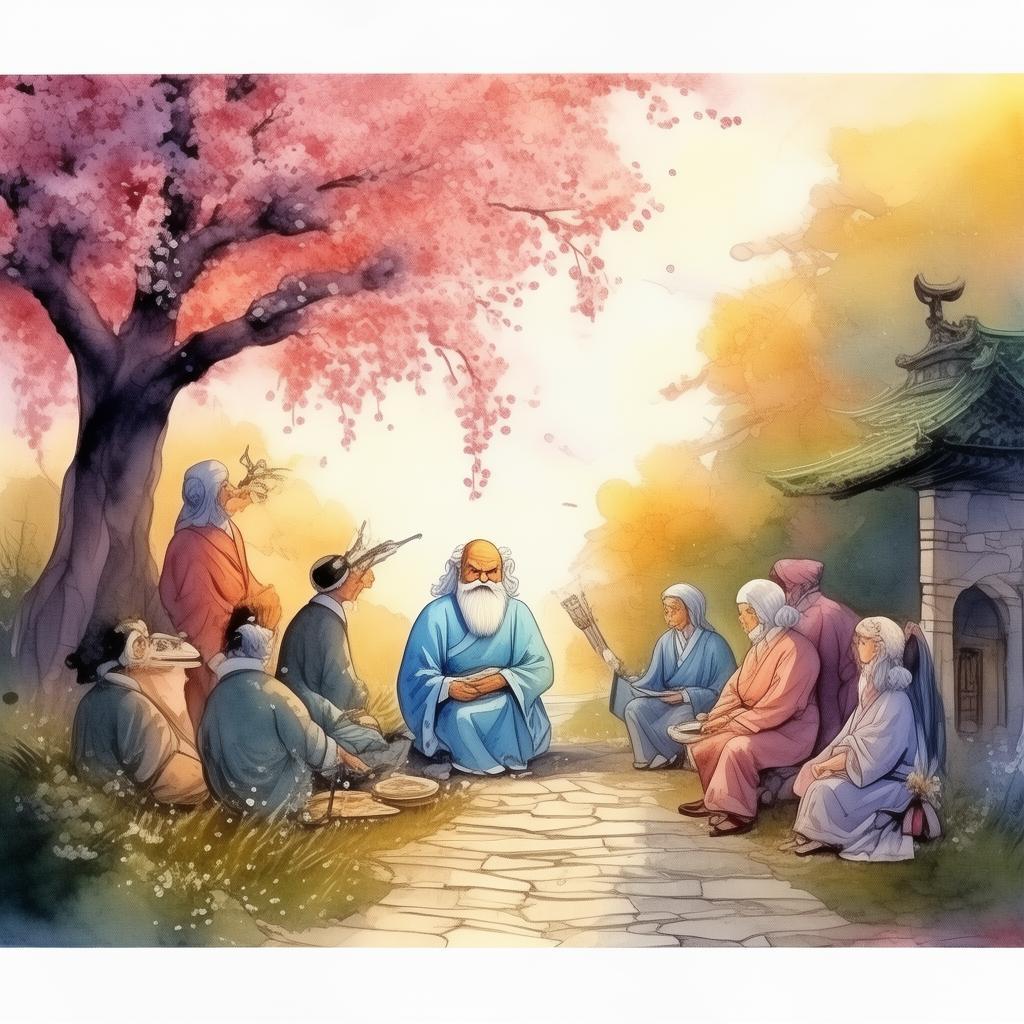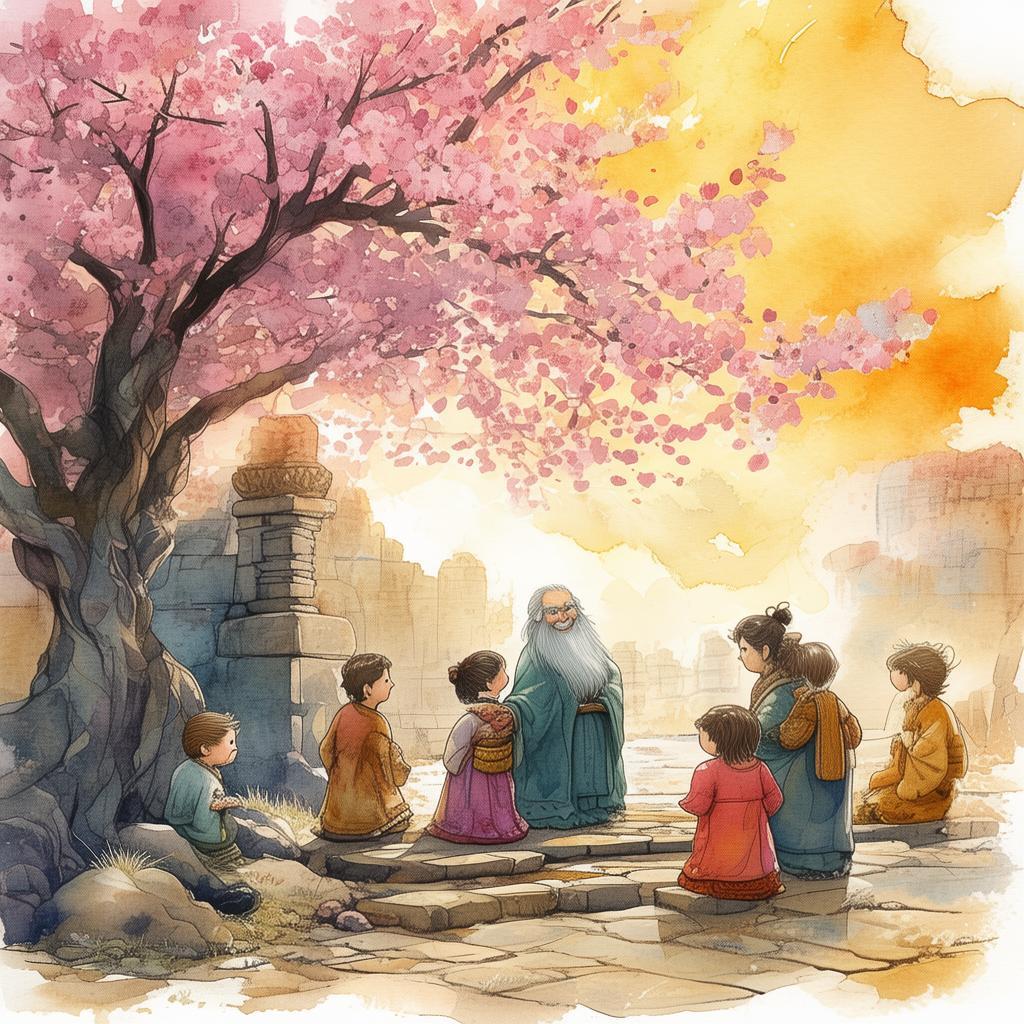The Labyrinth of the Hexagram: A Tale of the I Ching's Gothic Grandeur
In the heart of an ancient city shrouded in mist and mystery, there stood an enigmatic library known as the Arcanum. Its walls were adorned with the carvings of ancient runes, and its shelves held the secrets of the cosmos, bound in leather-bound tomes. The most revered of these tomes was the I Ching, a book of changes that held the key to understanding the mysteries of the universe.
Among the scholars of the Arcanum was a young man named Lin, whose life was consumed by the pursuit of knowledge. He had spent years studying the I Ching, decoding its complex hexagrams and their interpretations. But Lin felt a void within him, a hunger for a deeper understanding of the ancient text.
One stormy night, as the rain beat against the windows of the Arcanum, Lin received a cryptic message. It was a single word: "Hexagram." Intrigued and slightly unnerved, Lin followed the trail of the message, which led him to the library's hidden chamber, where a grand, Gothic labyrinth lay in wait.
The labyrinth was a marvel of Gothic architecture, its walls towering with intricate carvings of serpents and phoenixes, their eyes glowing with an eerie light. At the center of the labyrinth stood a pedestal, upon which rested a single, ancient book. Lin approached the pedestal, his heart pounding with anticipation.
As he opened the book, he was immediately enveloped in a surge of energy. The pages were filled with hexagrams, each one pulsating with a life of its own. Lin knew that this was the key to unlocking the true meaning of the I Ching.
He began to walk the labyrinth, each step bringing him closer to the heart of the hexagram. The walls seemed to close in around him, the air growing thick with anticipation. As he reached the center, he found himself face-to-face with a mirror, its surface reflecting the hexagram he had been seeking.
Lin looked into the mirror and saw not only the hexagram, but also his own reflection. The hexagram was a distorted version of himself, twisted and malformed. It was a vision of his own inner turmoil, his doubts and fears manifesting in the form of the hexagram.
In that moment, Lin realized that the labyrinth was not just a physical structure, but a metaphor for the journey of life. The hexagram was a reflection of his own path, a guide to understanding the complexities of existence.
As he continued to walk the labyrinth, he began to see the hexagrams as representations of his own life experiences. Each step brought him closer to understanding the balance between yin and yang, the constant flow of change and transformation.
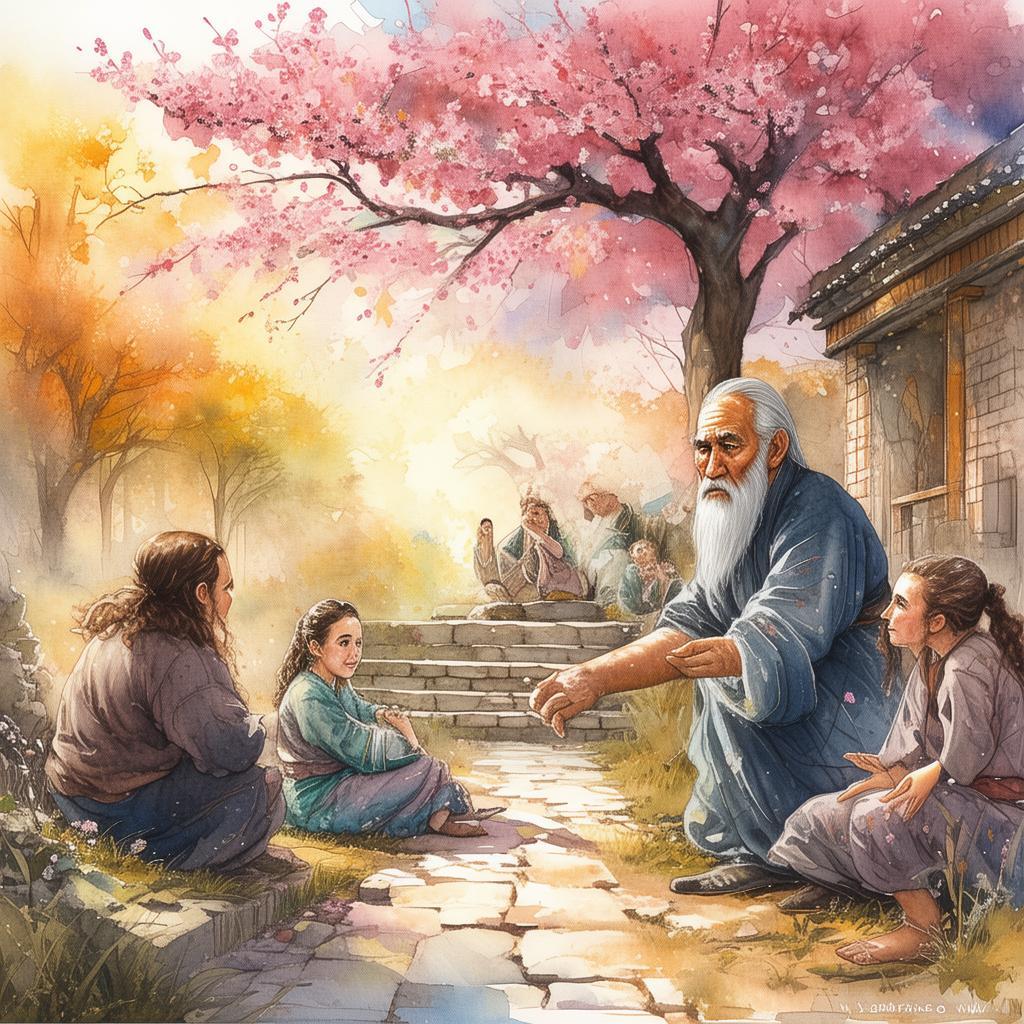
But as Lin reached the end of the labyrinth, he found himself at a crossroads. Before him stood two paths, each leading to a different destiny. One path was clear and well-lit, but the other was shrouded in darkness and uncertainty.
Lin paused, pondering his choice. He knew that the path he chose would determine his future, but he also knew that the true power of the I Ching lay not in the hexagrams themselves, but in the journey of understanding and growth.
With a deep breath, Lin chose the path of darkness. He knew that it would be a difficult journey, filled with challenges and obstacles, but he also knew that it was the only path that would lead him to true enlightenment.
As he walked the path, the hexagrams began to change, reflecting his own transformation. He learned to embrace the darkness within himself, to understand that it was an integral part of his journey.
In the end, Lin emerged from the labyrinth a changed man. He had learned that the true power of the I Ching lay not in the hexagrams, but in the journey itself. The labyrinth was a metaphor for the complexities of life, and the hexagrams were a guide to navigating those complexities.
Lin returned to the Arcanum, his heart filled with newfound wisdom. He realized that the I Ching was not just a book of changes, but a guide to understanding the changes within oneself. The Gothic grandeur of the I Ching's interpretations had revealed to him the true nature of life's labyrinth, and he knew that he would continue to walk its paths, ever seeking to understand the mysteries of existence.
✨ Original Statement ✨
All articles published on this website (including but not limited to text, images, videos, and other content) are original or authorized for reposting and are protected by relevant laws. Without the explicit written permission of this website, no individual or organization may copy, modify, repost, or use the content for commercial purposes.
If you need to quote or cooperate, please contact this site for authorization. We reserve the right to pursue legal responsibility for any unauthorized use.
Hereby declared.
